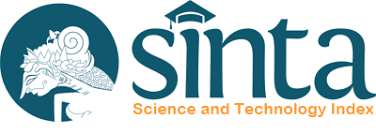Abstract
The objective of fiscal decentralization objective in Indonesia is to reduce development disparities. Regarding education development, one crucial issue is access disparity. Using 440 sub provincial database during 2005-2009, this study is aim to analyze the impact of fiscal decentralization in reducing disparity of primary education access. Using fixed-effect model, the result showed that Dana Alokasi Khusus (DAK) for Education, DAK Non Education, and Pendapatan Asli Daerah (PAD) have significant impact in reducing education access disparity along with the wealth and regional characteristics. Nonetheless efforts need to be done to optimize the equalization of education access including strengthening the provincial government role in resources allocation and distribution of basic education services.
Bahasa Abstract
Tujuan desentralisasi fiskal di Indonesia adalah untuk mengurangi kesenjangan pembangunan. Terkait dengan pembangunan pendidikan, salah satu masalah krusial adalah kesenjangan akses. Menggunakan data dari 440 database kabupaten kota selama 2005-2009, studi ini bertujuan untuk menganalisis dampak desentralisasi fiskal dalam mengurangi disparitas akses pendidikan dasar. Dengan menggunakan fixed-effect model, hasilnya menunjukkan bahwa Dana Alokasi Khusus (DAK) Pendidikan, DAK Non-Pendidikan, dan Pendapatan Asli Daerah (PAD) memiliki dampak yang signifikan dalam mengurangi disparitas akses pendidikan bersama dengan karakteristik kekayaan dan regional. Berbagai upaya tetap perlu dilakukan untuk mengoptimalkan pemerataan akses pendidikan termasuk penguatan peran pemerintah provinsi dalam alokasi dan distribusi sumber daya pelayanan pendidikan dasar.
References
[1] Badan Pusat Statistik. (2009). Produk Domestik Regional Bruto Provinsi-Provinsi di Indonesia. Jakarta : BPS.
[2] Bappenas & UNDP. (2008). Evaluation of the Proliferation of Administrative Region in Indonesia. UNPD.
[3] Boissiere, M. (2004). Determinants of Primary Education Outcomes in Developing Countries. OED Working Papers. Washington D.C.: World Bank. http://www.worldbank.org/oed/ education/documents/education_primary_ determinants_paper.pdf. (Accessed November 6, 2011).
[4] Brodjonegoro, B. (2003). Three Years of Fiscal Decentralization in Indonesia: Its Impact on Regional Economic Development and Fiscal Sustainability. http://www.econ.hit-u.ac.jp/~kokyo/ APPPsympo04/Indonesia(Bambang).pdf. (Acces- sed November 6, 2011).
[5] Elmi, B. (2002). Kebijakan Desentralisasi Fiskal Kaitannya dengan Hutang Luar Negeri Pemerintah Daerah Otonom. Kajian Ekonomi dan Keuangan, 6 (4), 49-70.
[6] Faguet, J. & Sanchez, F. (2006). Decentralization's effects on educational outcomes in Bolivia and Colombia. London: London School of Economics and Political Science. http://eprints.lse. ac.uk/27159/1/Decentralizations_effects_ education_world_dev_%28LSERO%29.pdf. (Accessed December 15, 2011).
[7] Glewwe, P. (2002). Schools and Skills in Developing Countries: Education Policies and Socioeconomic Outcomes. Journal of Economic Literature, 40 (2), 436-482. http://www.jstor.org/stable/ 2698384. (Accessed January 5, 2012).
[8] Greene, W. H. (1997). Econometric Analysis, 3rd Edition. London: Prentice Hall.
[9] Hsiao, C. (2003). Analysis of Panel Data, 2nd Edition. Cambridge: Cambridge University Press.
[10] Isdijoso, B. & Wibowo, T. (2002). Analisis Kebijakan Fiskal pada Era Otonomi Daerah (Studi Kasus: Sektor Pendidikan di Surakarta). Kajian Ekonomi dan Keuangan, 6 (1), 22-56. http://fiskal.depkeu.go.id/webbkf/kajian% 5CBramtri-1.pdf. (Accessed December 15, 2011).
[11] Kementerian Pendidikan Nasional. (2007). Laporan Akuntabilitas Kinerja Pemerintah. Jakarta: Depdiknas.
[12] Kementerian Pendidikan Nasional. (2009). Ikhtisar Data Pendidikan Nasional. Jakarta: Depdiknas.
[13] Media Indonesia Online. (2008, Mei 2). Pendidikan yang Tidak (Pernah) Tuntas. http://meekfoundation.org/index.php?act= articles&type=h&do=view&id=279. (Accessed December 15, 2011).
[14] Murillo, M. V., Tommasi, M., Ronconi, L., & Sanguinetti, J. (2002). The Economic Effects of Unions in Latin America: Teachers' Unions and Education in Argentina. Research Network Working Paper, R-463. Washington, DC: Inter-American Development Bank. http://www.iadb.org/research/pub_hits.cfm? pub_id=R-463&pub_file_name=pubR-463.pdf. (Accessed January 5, 2012).
[15] Todaro, M. P. & Smith, S. C. (2009). Economic Development, 10th Edition. Boston : Pearson Addison Wesley.
[16] Usman, S., Mawardi, M. S., Poesoro, A., & Suryahadi, A. (2008, Jan-Apr). Mekanisme dan Penggunaan Dana Alokasi Khusus. Newsletter Smeru, 25. http://www.smeru.or.id/newslet/2008/ news25.pdf. (Accessed January 5, 2012).
[17] Waluyu, J. (2008). Dampak Desentralisasi Fiskal terhadap Pertumbuhan Ekonomi dan Ketimpangan Pendapatan Antar Daerah di Indonesia Tahun 2001-2005. http://sulutiptek.com/documents/ DAMPAKDESENTRALISASIFISKALTERHADAPPERTUMBU HANEKONOMIDANKETIMPANGANPENDAPATANANTARDAE RAHDIINDONESIA.pdf. (Accessed December 15, 2011).
Recommended Citation
Doriza, Shinta; Purwanto, Deniey A.; and Maulida, Ernita
(2012)
"Dampak Desentralisasi Fiskal terhadap Disparitas Akses Pendidikan Dasar di Indonesia,"
Jurnal Ekonomi dan Pembangunan Indonesia: Vol. 13:
No.
1, Article 3.
DOI: 10.7454/jepi.v13i1.1328
pp.31-46
Available at:
https://scholarhub.ui.ac.id/jepi/vol13/iss1/3







